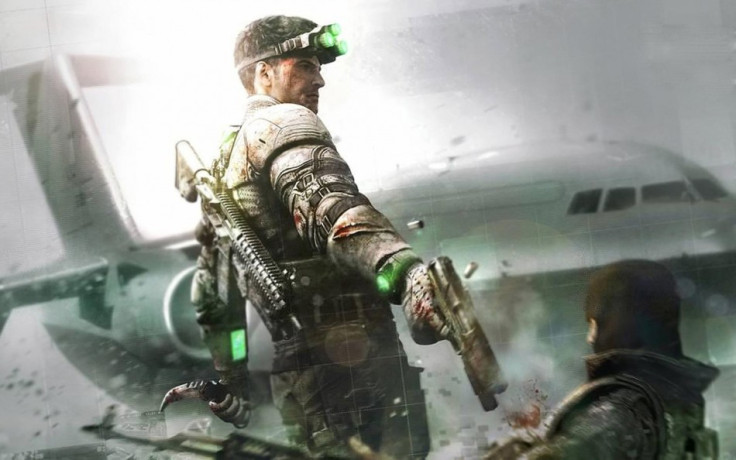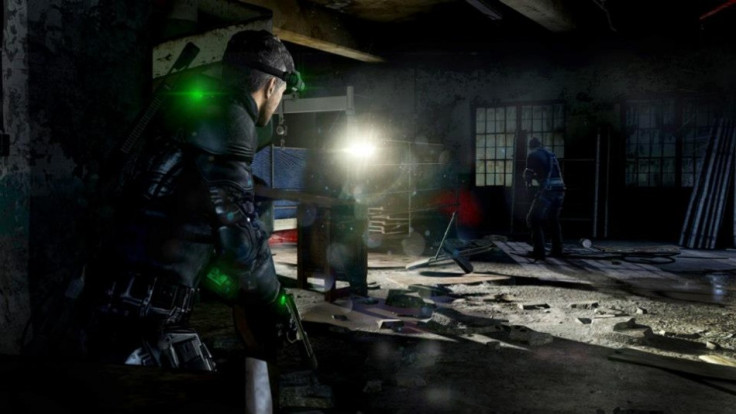Splinter Cell: Blacklist Review

Key Features:
- Developer - Ubisoft Toronto
- Publisher - Ubisoft
- Platform - PlayStation 3 [Tested], Xbox 360, Wii U, PC
- Release date - 23 August
- Price - £44.99
Splinter Cell: Blacklist
Splinter Cell: Blacklist is likeable and unlikeable in equal measure. Its mechanics are smart but also frustrating, while the story is neither "fun action romp" nor "heavy drama." I'm not sure what to think of it. I can see straight through its every design choice and ham-handed cliché but at the same time I've just played it for eight hours non-stop. It must be doing something right.
For the folks in marketing it surely will be. Blacklist has something for everyone, be it multiplayer, single-player, customisation, action or stealth. As such it's pretty bloated. In its bid to reach that gaseous but lucrative universal market, Ubisoft has stuffed Blacklist full with features, like it did with Assassin's Creed 3, and the effect is basically the same. There's plenty to do, but a lot of it feels perfunctory and you spend a lot of the game learning how to do things and navigating sub-menus.
There are optional missions as well, usually involving micro set-ups like wave defence or terrorist hunt. Though they're typically good fun, with a few taking just as much skill and concentration as the campaign levels proper, these mini-missions feel like extra weight. Again, this is something Blacklist shares with Assassin's Creed 3, whereby you're constantly being pulled away from the main and more interesting story by nagging little distractions. You have to upgrade and manage your plane as well, which stands in as mission HQ and resembles, functionally, Assassin's Creed's homestead.
Stripped out
It's where you access your missions and you can walk around it freely talking to support characters. It's a pain in the neck essentially, adding an unnecessary level of micro-management that stifles the narrative. It might be a personal quirk - I know a lot of gamers like to get as much "content" as possible - but I think Blacklist would be a better game if all this was stripped out.
The campaign, you see, deserves your full attention - it's dead good. Blacklist manages to walk the tightrope between gun and stealth play, never punishing you for using your weapon but encouraging you to stay quiet. Abusive but elusive is the best way to play. Find some shadows, draw your silenced pistol and pop a guard's heads as they round a corner. Blacklist isn't a game of set-pieces as such, but it invites you to form your own small plans and then execute them perfectly.

During a mission in the US, I dangled myself off a ledge, then one-shotted a guy below me before letting go and dropping myself on top of his mate.
Intuitive
Blacklist's controls are designed around moves like this. The Mark and Execute mechanic returns, allowing you to "tag" enemies before tapping Y to headshot them in a row during a quick cutscene. You can also scurry up walls, again like in Assassin's Creed and nimbly move from cover to cover just by tapping A. You'll still be punished for your mistakes - a single guard is enough to end you - but planning and executing complex plays in Blacklist is simple. I know this word is a game reviewer's cliché, but the controls really are intuitive.
It's a shame the story isn't half as well designed. You return as secret agent Sam Fisher, except now with a new face, haircut and voice actor. He's in pursuit of a terrorist group that plans to launch an attack on America every seven days unless the government agrees to withdraw all US military forces from foreign countries. It's typical videogame scud, with missions involving kidnapping and arms dealer and breaking into a top secret area where you mus not be detected. You've played this, you know how it goes.
The characters are similarly copy and paste. There's Fisher, the gruff but complex leading man; Briggs, his mild-mannered sidekick who still has a lot to learn; Grimsdottir, who's been assigned to Fisher's team to provide sexual tension; and Charlie, a preposterous hacker figure who delivers comic relief and implausible technology for whenever the writers need to explain a contrivance. "How do we know all this?" Fisher will ask Charlie. "I hacked it from the mainframe," he will always reply. It's that kind of thing.
MacGuffins
Charlie and his magical technology are what break Blacklist's narrative. Whenever there's some difficult situation or daunting prospect, Charlie chips in with a remote-controlled hacker drone or a pair of goggles that let you see through walls. It effects not just the story, but the gameplay as well. The tension is ripped from almost every scene thanks to Blacklist's endless array of hi-tech MacGuffins. Like I said earlier, it's overcrowded. Call me old-fashioned, but I preferred it when Splinter Cell was just you, a pistol and the snake cam.
It's precisely that kind of subtlety that's missing from Blacklist. I don't want to harp on too much about the old games, but in the very first Splinter Cell Fisher and his NSA handlers were bastards. There was a part in that game where Wilkes, an intelligence analyst, got shot and killed during a mission in Virginia. Fisher called Lambert, his boss and asked: "What about Wilkes?" clearly meaning "how do you feel about it?" "We'll get a new analyst to you as soon as possible" replied Lambert, coldly, and that was the end of the exchange.
It was perfect, ruthless stuff, casting aspersions over the morality of America's wetwork. In Blacklist, though, everything's fine. Fisher's actions are all contextualised and exempted as vital to national security. With Edward Snowden, Prism and drone strikes on US citizens, now is a time when American surveillance and espionage policy is ripe for debate, but Blacklist fails to engage with that subject matter. There's not a shred of class or intelligence to Blacklist's story. The irony that what Fisher is doing is precisely what his terrorist enemies are battling against seems lost on Blacklist's writers.
Verdict
And that's a shame, because it makes it difficult to enjoy the excellent mix of action and stealth on display here. There are so many parts of Blacklist that are good, levels set in London and a US department store decorated for Christmas stand out in particular. If you can ignore all the window-dressing, the distracting additional missions and under-thought story, there's enjoyment to be had with Blacklist. It's not the fully rounded package its creators intended, but its core sneak-and-shoot mechanics make it very worthwhile.
Scores:
- Gameplay: 8/10 - Many developers have struggled to blend action and stealth seamlessly, but Ubisoft manages it here and the results are wonderful.
- Sound: 5/10 - None of the voice performances stand out and the music is nondescript. Especially when compared with Chaos Theory, Fisher's third outing, the soundtrack is really lacking.
- Graphics: 7/10 - Blacklist is as shiny as you'd expect any AAA console release to be, with a few levels, especially those at night, really taking advantage of the excellent light and shimmer effects. The London dockyard mission is particularly handsome.
- Writing: 4/10 - Not so good. There's no nuance or scrutiny. When a time such as now when American foreign and surveillance policy is such a hot debate topic, Blacklist feels like a missed opportunity.
- Replay value: 8/10 - Blacklist has replay value in spades: There's co-op, competitive multiplayer and extra missions. If you're a completionist, there's plenty to chew on.
- Overall: 7/10 - For all my complaints, I enjoyed playing Blacklist a great deal. The story is poor and its drowned in "content" but there's a brilliant stealth slash action game at its core.
Want to know what our review scores mean? Have a look at how we review games.
© Copyright IBTimes 2025. All rights reserved.






















